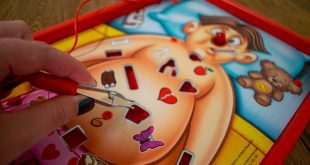 By itself, palpitations is not considered a disease.
By itself, palpitations is not considered a disease.
Rapid heartbeat that causes discomfort, is not necessarily a symptom of any disease.
Hypersensitivity of the nervous system directly affects our heart, the result of neurasthenia and neurosis muscular organ begins to contract more frequently.
If the heart beats more than 80 in one minute, in this case, it is already possible to speak about the presence of tachycardia. It can appear in perfectly healthy people during physical exercise, various emotional experiences, pain, elevated temperature environment, as well as the consumption of alcohol, coffee and Smoking.
This tachycardia is called temporary, later it gradually diminishes.
Tachycardia can be physiological (often occurs in children), and pathological. The first is characterized by increases in heart rate due to physical stress and various disturbances. Same pathological tachycardia occurs even in the presence of diseases.
Tachycardia is not only temporary, but long term, it can appear in the result:
– various infectious diseases – the increased body temperature increases heart rate.
– lesions of the heart muscle caused by insufficient blood circulation.
– of shock, fainting, bleeding – tachycardia appears due to the decrease in blood pressure.
– anemia, purulent lesions, tissue degeneration, inflammation, tumors.
– the use of poisons and other chemicals, the pulse may become more frequent because of the caffeine, alcohol, adrenaline, atropine, insulin, nicotine and nitrates.
– hyperthyroidism is a hormonal disease that occurs due to increased thyroid function.
– vegetative-vascular dystonia – tachycardia can occur in young people who suffer from stabbing pain in the heart area, shortness of breath and fatigue, insomnia and weight loss.
– neurosis, which leads to bouts of tachycardia, which may be accompanied by up to 200 beats per minute.
In order to accurately determine the cause of palpitations, you must consult a cardiologist. The specialist will examine the patient and, after laboratory and diagnostic tests, will be able to make an accurate diagnosis.








